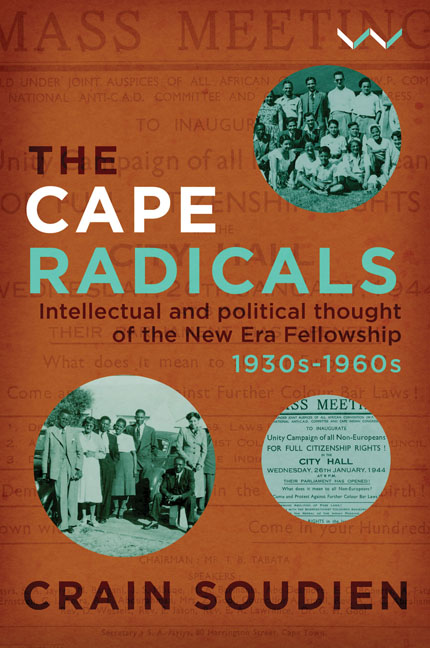Book contents
- Frontmatter
- Contents
- Acknowledgements
- Acronyms and Abbreviations
- Timeline
- Introduction
- 1 A Battle of Ideas
- 2 Planters of the Seed
- 3 ‘Anything under the Sun’: The Formation of the New Era Fellowship
- 4 ‘Honest, Sincere and Fearless’, 1937–1940
- 5 The Road to Emancipation, 1940–1953
- 6 A Cauldron of Conflict
- 7 Legacy
- Notes
- List of Illustrations
- Bibliography
- Index
5 - The Road to Emancipation, 1940–1953
Published online by Cambridge University Press: 29 October 2019
- Frontmatter
- Contents
- Acknowledgements
- Acronyms and Abbreviations
- Timeline
- Introduction
- 1 A Battle of Ideas
- 2 Planters of the Seed
- 3 ‘Anything under the Sun’: The Formation of the New Era Fellowship
- 4 ‘Honest, Sincere and Fearless’, 1937–1940
- 5 The Road to Emancipation, 1940–1953
- 6 A Cauldron of Conflict
- 7 Legacy
- Notes
- List of Illustrations
- Bibliography
- Index
Summary
The New Era Fellowship (NEF) was born against a backdrop of extraordinary global and local upheaval. Its early years saw a second wave of carnage and barbarism engulfing the world in the Second World War. People were dying on the battlefields of Europe. German Panzers drove across the landscape of the Low Countries and France, impelled by the idea of Aryan supremacy. Six million Jews, gypsies, homosexuals, communists and non-conformists were systematically murdered.
While this was happening subjugated people of colour around the world were stirring. Within less than a decade the people of China and India would assert their sovereignty over their countries.
In South Africa people of colour were simultaneously being coaxed into making themselves available for the war effort and forced to cede what little freedoms they had.
How to make sense of this was what the young leadership of the NEF understood their task to be. The stock-taking exercise they undertook at the end of the 1930s and the beginning of the 1940s was deeply important. Out of it would come their first major theoretical statements about the social, and the beginnings of the making of a political and social agenda would be seen. The agenda was carried on the wings of the innovative social analysis, which was the result of the systematic and carefully explored programmatic questioning enabled by the NEF. Deep and meaningful reflection on the meaning of and process for building the unity of oppressed people preoccupied them at every level of their lives. The agenda took its direction from the thinking of Ben Kies, who produced three key documents in this period: The Background of Segregation in 1943, The Basis of Unity in 1945 and finally, in 1953, the magisterial ‘The Contribution of the Non-European Peoples to Civilisation’.
From early beginnings in 1943 it took just over a decade for the ranks of the left to shift towards a clear anti-race position. One sees through the progression of the three Kies papers a working out of the idea of race. The process begins and continues until the end of the 1940s with the idea of race relatively intact, but then rapidly tips over conceptually to another space where the idea is completely rejected.
- Type
- Chapter
- Information
- Cape RadicalsIntellectual and Political Thought of the New Era Fellowship, 1930s to 1960s, pp. 113 - 144Publisher: Wits University PressPrint publication year: 2019



